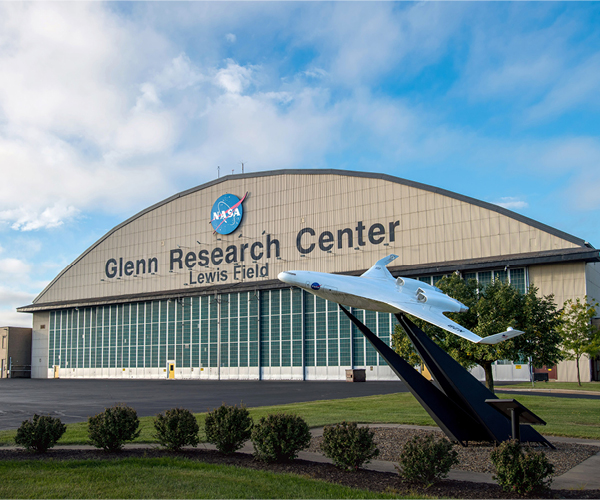Tri-C's Northeast Ohio Collaboration Could Have Galactic Impact
College helps NASA Glenn test mini-X-ray technology for space health care
 CLEVELAND — Cuyahoga Community College (Tri-C®) is collaborating with scientists at NASA's Glenn Research Center and radiography experts at University Hospitals to help advance medical care during spaceflight.
CLEVELAND — Cuyahoga Community College (Tri-C®) is collaborating with scientists at NASA's Glenn Research Center and radiography experts at University Hospitals to help advance medical care during spaceflight.
As NASA plans future human exploration missions to the moon, Mars and beyond, enhanced medical care capabilities will be critical. Crews will need noninvasive imaging technology to diagnose medical conditions, like broken bones or dental injuries.
NASA Glenn scientists are testing portable, handheld X-ray systems for use during future extended space missions. Having portable X-ray capabilities aboard spacecraft would allow astronauts to immediately assess and treat potential injuries or identify equipment issues without having to disassemble the device.
"Technological innovations like that of the mini-X-ray will help keep our astronauts healthy as we endeavor farther into space than ever before," said acting NASA Administrator Sean Duffy. "Future missions to the moon and Mars will be safer due to the research of our scientists at NASA Glenn."
Tri-C contributed anatomical phantoms — lifelike models of the human body — in its radiography laboratory on the Western Campus and the Dental Hygiene Clinic at the Metropolitan Campus. Faculty and students consulted with NASA researchers on essential imaging principles, including patient positioning, image acquisition and image quality.
"We're fortunate to have enthusiastic medical and radiography experts right here in our community," said Cy Peverill, DBA, project task lead at NASA Glenn. "Their knowledge and experience are invaluable as we work to test medical technologies that could significantly improve the management of astronaut health on future missions to the moon or Mars."
In addition to working with Tri-C and University Hospitals, NASA Glenn is collaborating with other centers, including NASA's Johnson Space Center in Houston and NASA's Langley Research Center in Hampton, Virginia.
NASA Glenn researchers will continue to collect data from all collaborators and plan to select a device near the end of 2025. They will test the chosen system aboard the International Space Station in 2026 or early 2027.
Read the full story on the NASA website.
September 04, 2025
MEDIA CONTACT: Anthony Moujaes, 216-987-3068 or anthony.moujaes@tri-c.edu
